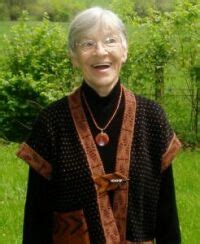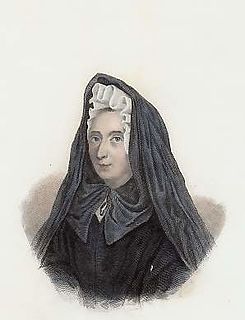A Quote by Evelyn Underhill
The first question here, then, is not "What is best for my soul?" nor is it even "What is most useful to humanity?" But-transcending both these limited aims-what function must this life fulfill in the great and secret economy of God?
Related Quotes
......at this point the self has obviously outworn its function; it is no longer needed or useful, and life can go on without it. we are ready to move on, to go beyond the self, beyond even its most intimate union with God, and this is where we enter yet another new life- a life best categorized, perhaps, as a life without a self.
Death did not first strike Adam, the first sinful man, nor Cain, the first hypocrite, but Abel, the innocent and righteous. The first soul that met with death, overcame death; the first soul that parted from earth went to heaven. Death argues not displeasure, because he whom God loved best dies first, and the murderer is punished with living.
This above all-ask yourself in the stillest hour of your night: must I write? Delve into yourself for a deep answer. And if this should be affirmative, if you may meet this earnest question with a strong and simple "I must," then build your life according to this necessity; your life even into its most indifferent and slightest hour must be a sign of this urge and a testimony to it. Then draw near to Nature. Then try, like some first human being, to say what you see and experience and love and lose.
The soul seeks God by faith, not by the reasonings of the mind and labored efforts, but by the drawings of love; to which inclinations God responds, and instructs the soul, which co-operates actively. God then puts the soul in a passive state where He accomplishes all, causing great progress, first by way of enjoyment, then by privation, and finally by pure love.
On some positions, cowardice asks the question, is it expedient? And then expedience comes along and asks the question, is it politic? Vanity asks the question, is it popular? Conscience asks the question, is it right? There comes a time when one must take the position that is neither safe nor politic nor popular, but he must do it because conscience tells him it is right.
...a point is reached where the self is so completely aligned with the still-point that it can no longer be moved, even in its first movements, from this center. It can no longer be tested by any force or trial, nor moved by the winds of change, and at this point the self has obviously outworn its function; it is no longer needed or useful, and life can go on without it.
There is a great ladder of religious cruelty, and, of its many rungs, three are the most important. People used to make human sacrifices to their god, perhaps even sacrificing those they loved the best ... Then, during the moral epoch of humanity, people sacrificed the strongest instincts they had, their 'nature,' to their god... Finally: what was left to be sacrificed? ... Didn't people have to sacrifice God himself and worship rocks, stupidity, gravity, fate, or nothingness out of sheer cruelty to themselves?
I believe in the absolute oneness of God and, therefore, also of humanity. What though we have many bodies? We have but one soul. The rays of the sun are many through refraction. But they have the same source. I cannot, therefore, detach myself from the wickedest soul (nor may I be denied identity with the most virtuous).
We must, with God's help, eradicate the deadly poison of the demon of anger from the depths of our souls. So long as he dwells in our hearts and blinds the eyes of the heart with his somber disorders, we can neither discriminate what is for our good, nor achieve spiritual knowledge, nor fulfill our good intentions, nor participate in true life; and our intellect will remain impervious to the contemplation of the true, divine light; for it is written, 'Man's anger does not bring about the righteousness of God' (Jms. 1:20).





































